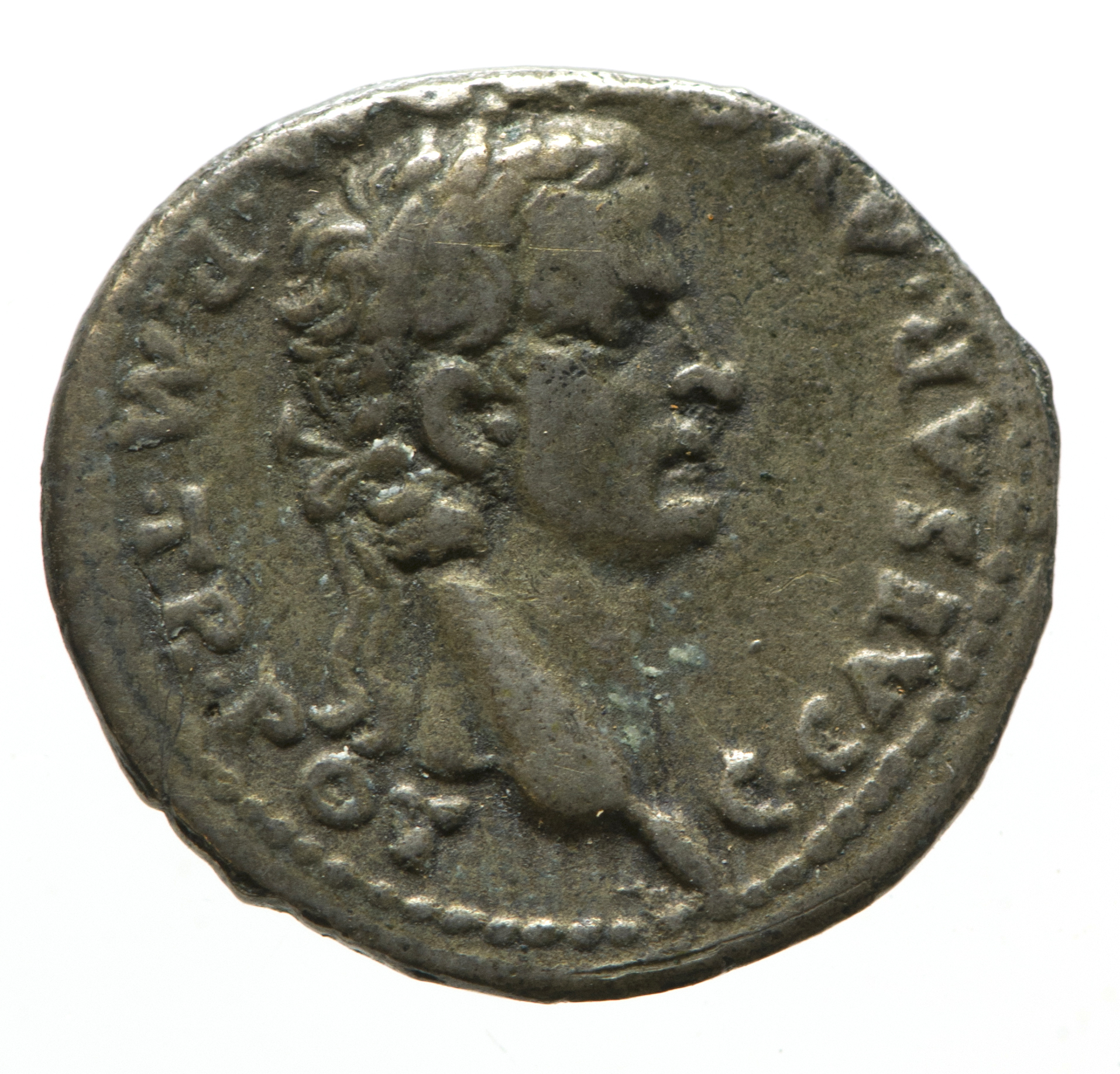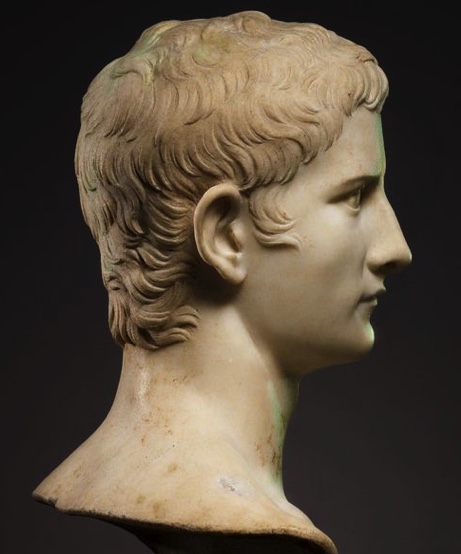Caligula was the third Roman emperor, ruling from 37-41 AD – a short but unstable reign. He came to power on 18 March but was assassinated on 24 January 41 AD, not quite making four years as an emperor.
It didn’t start out like that, though – at first, Caligula was welcomed by the Roman population. He become emperor at the age of 25 and set out a series of reforms that made him popular, abolishing onerous and unfair taxes, freeing those who had been jailed unjustly – and winning over the militia by granting generous bonuses to Roman soldiers.
Caligula’s childhood
However, the rot had set in early in Caligula’s life. His parents were Roman general Germanicus and Agrippina the Elder.
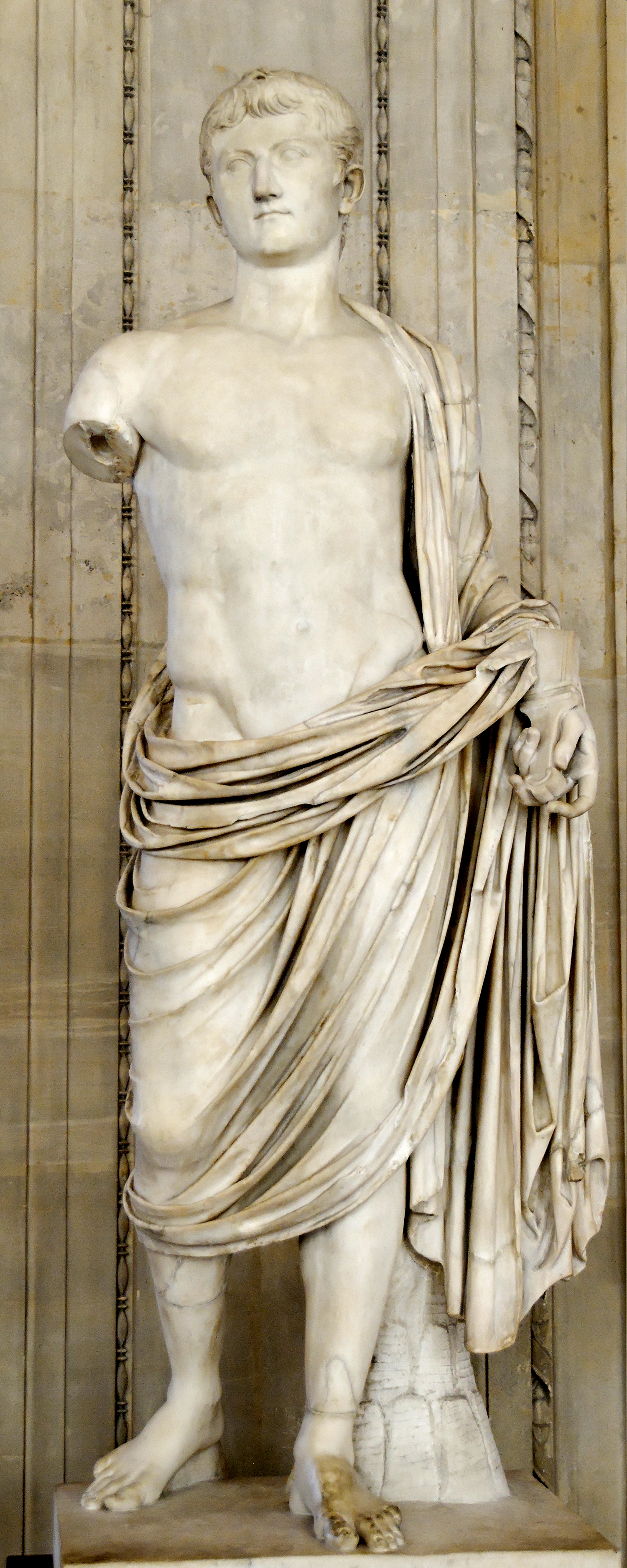
Germanicus was the nephew of the Emperor Tiberius, who adopted him. Agrippina the Elder was the granddaughter of Emperor Augustus (who was the great nephew of and successor to Julius Caesar). Caligula therefore had the perfect pedigree to be a Roman Emperor.
However, it was thought Tiberius poisoned Germanicus because of political rivalry. Agrippina the Elder vowed to avenge her husband’s death, but died with two of her other sons, Nero and Drusus, while imprisoned by Tiberius.
As a youngster, Caligula was sent to live with Livia, mother of Tiberius, and was named his successor jointly with his cousin, Gemellus, after being summoned to Capri to live with Tiberius, a man he hated for having destroyed his own family as a child.
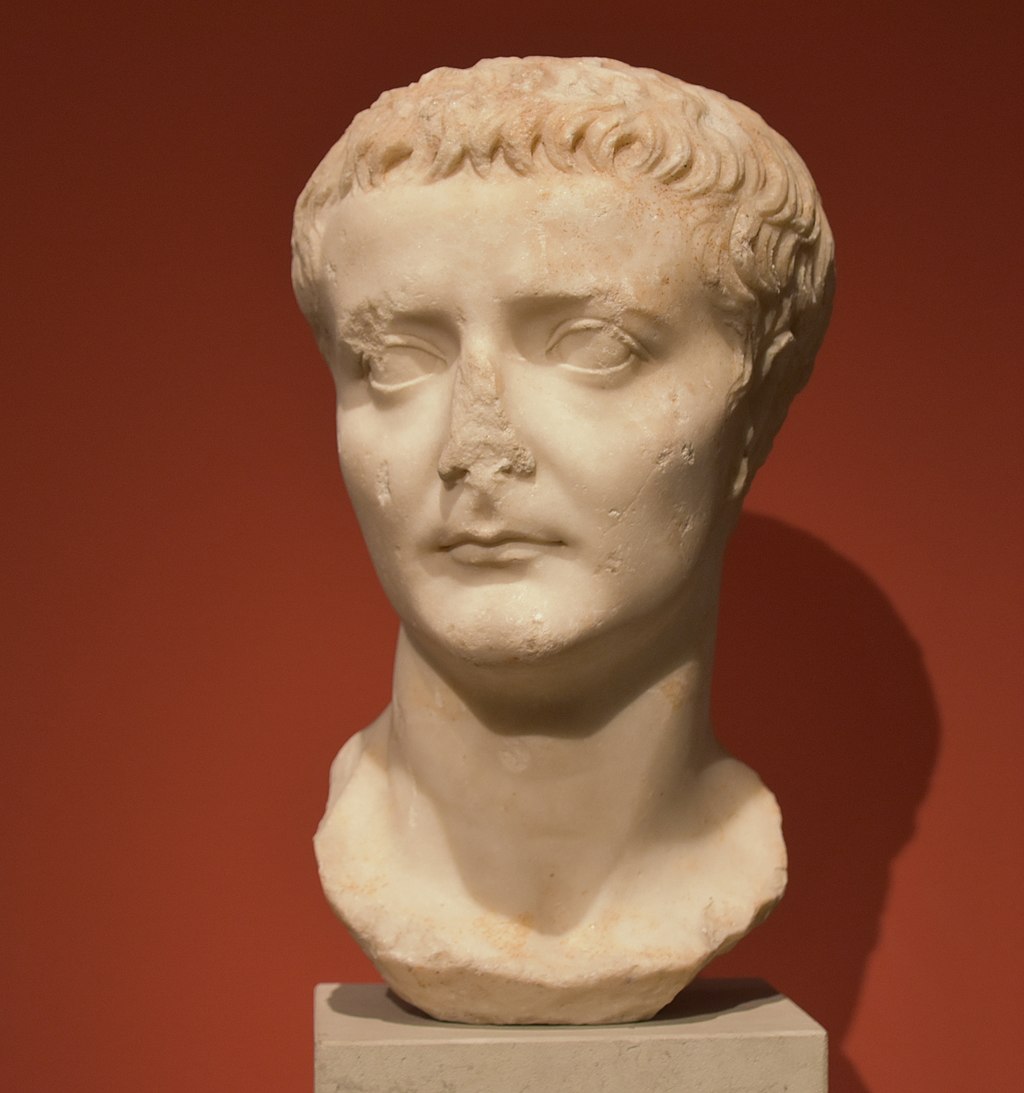
After Tiberius died, Caligula manoeuvred himself into becoming sole emperor and had Gemellus put to death.
There is suggestion that Caligula became cruel and unstable because of the trauma of his early childhood – as well as speculation that he might have been mentally ill or suffering from any number of physical illnesses, such as hyperthyroidism.
Caligula was tall and fair haired – later he went bald but remained hirsute in body, something he was taunted over. Later he banned anyone from mentioning the word “goat” in his presence.
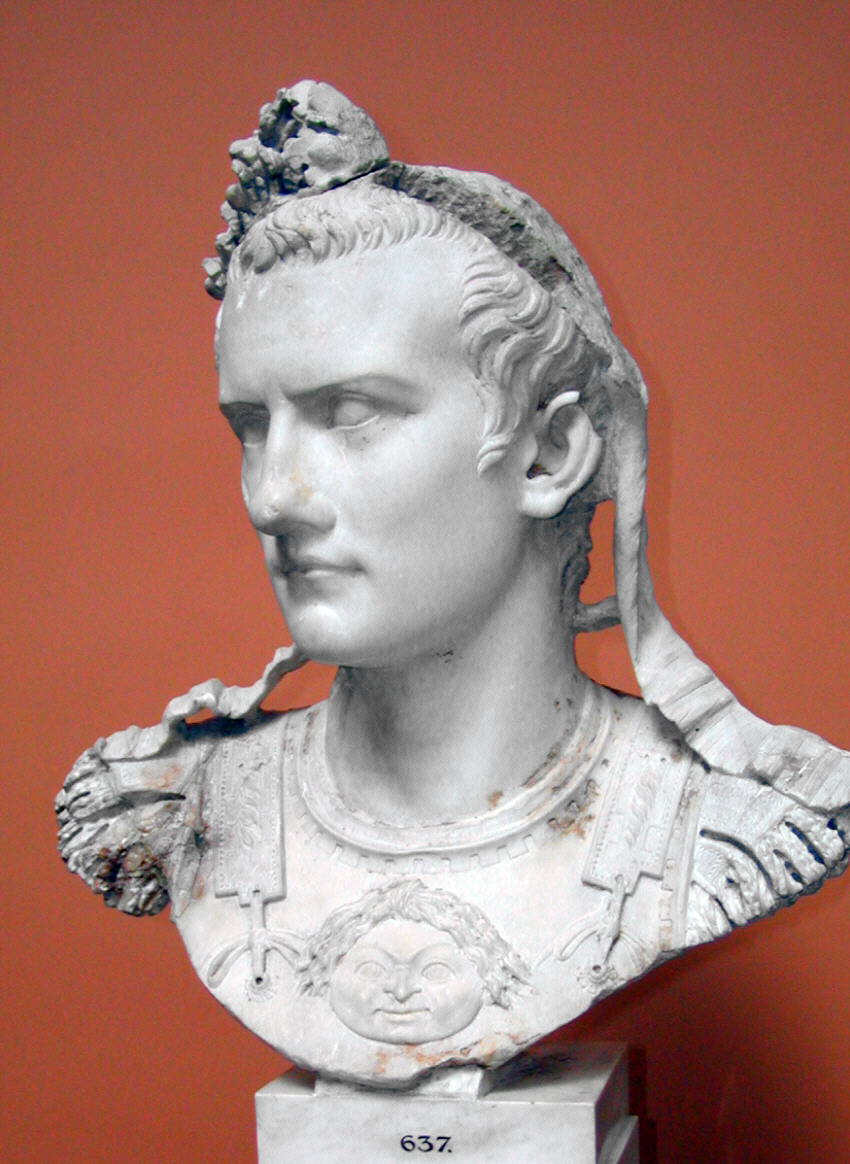
Caligula’s descent into madness
There are lots of stories about Caligula – that he was so fond of his horse he was considering making it a consul. That he had conversations with the moon – that he made the same mistake that his ancestor Caesar did and declared himself a living god.
Caesar was killed after attempting to have himself recognised as a god in perpetuity – he claimed to be a direct descendant of Venus though his alleged forebear Aeneas, hero of the epic poem The Aeneid by the poet Virgil. In Greek mythology, Aeneas is the son of Venus and an earthly prince, Anchises.
Caligula aligned himself to many gods, but especially Jupiter – chief god – and decided that a bridge leading to the Temple of Jupiter on the Capitoline Hill should be built so he could commune with the god whenever he wished.
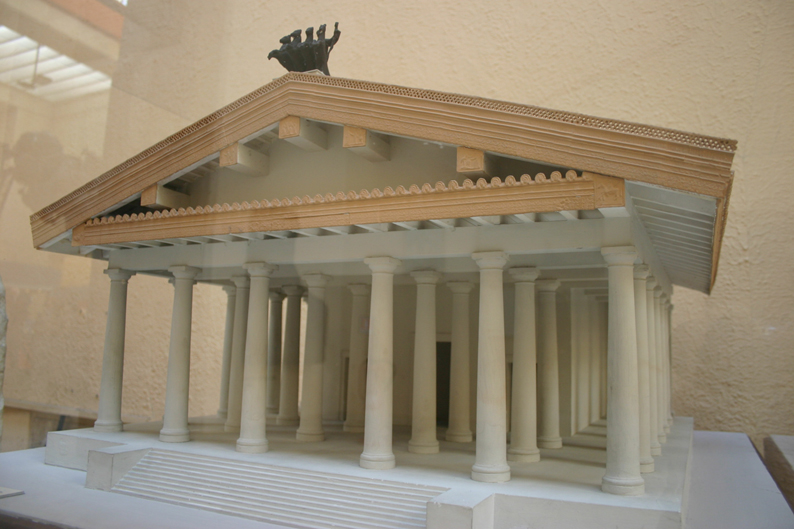
The more unpopular he became, the more extreme he became in his behaviour and views – until he decided he should move to Egypt where he would be venerated as a living god.
Perhaps he was again thinking of his ancestor, Caesar, when he decided this – Caesar was, of course, infamously one of the many lovers of the former Queen of Egypt, Cleopatra.
Egyptian pharaohs were thought to be the earthly incarnation of the gods and the intermediary between the gods and earth.
Caligula’s death
Like Caesar’s promulgation of being a living god, self-deification was a step too far and Caligula was stabbed to death by guards on 24 January 41 AD. After his death, the Senate tried to erase all traces of his reign and legacy – but, as in the case of Caesar’s demise, the plebeians of Rome rose up and demanded the death of Caligula be avenged.
His successor was his uncle, the Emperor Claudius, who put to death those who had murdered Caligula. Tragically, Caligula’s wife and daughter were murdered at the same time, ending his line. But his nephew Nero – who left a lasting reputation for excess and cruelty, also – later became emperor.
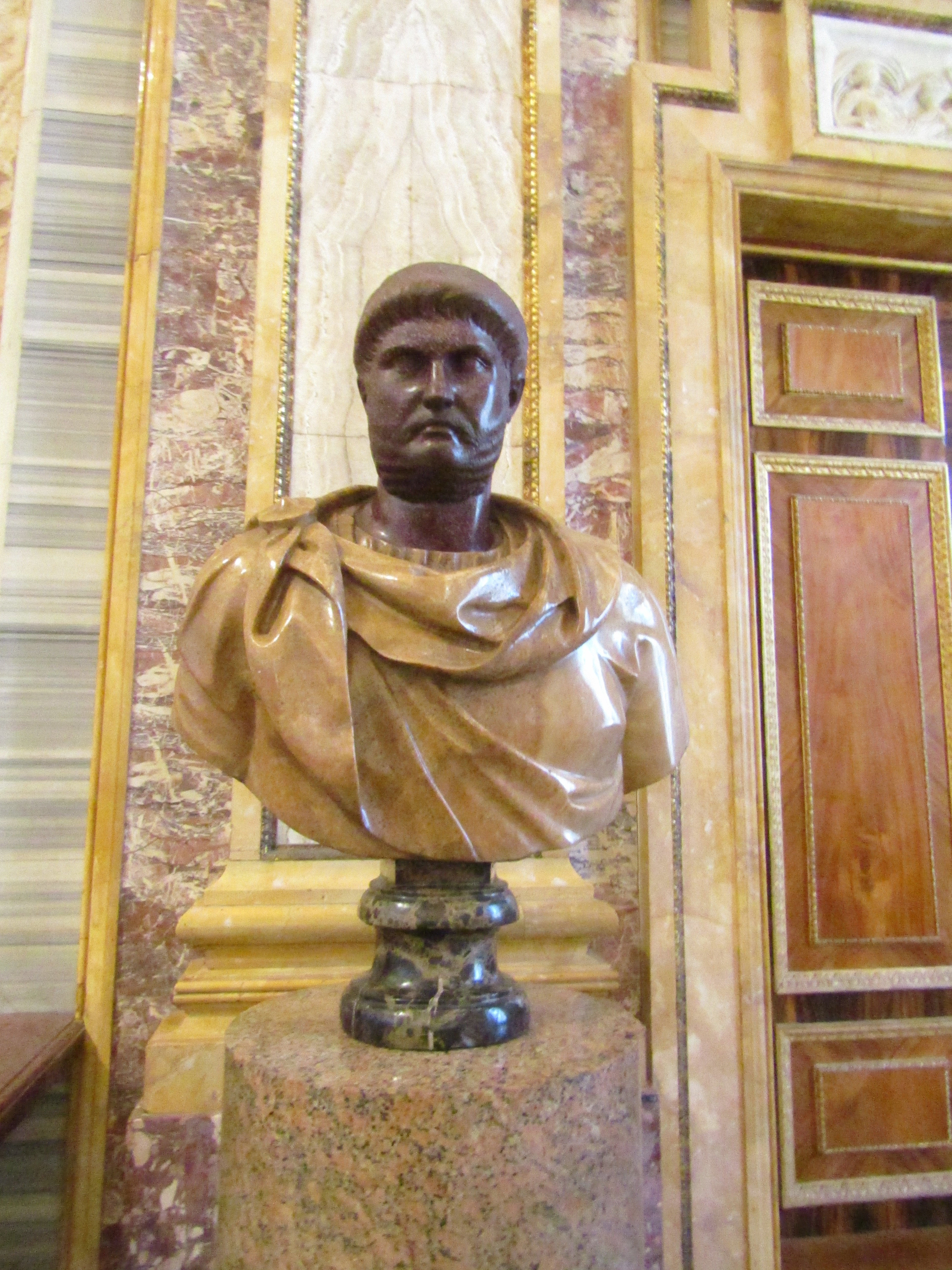
No one will ever know why Caligula was the way he was – he was both loved and hated, both generous and fair, but cruel and irrational.
Caligula was a nickname given to him as a child. It means “little boot” and was given to him by the soldiers accompanying him and his father on hunting trips when he was a child and he wore a scaled down soldier’s uniform, which amused the soldiers.

He was born Gaius Julius Caesar Augustus Germanicus on 31 August 12 AD – a fitting name for an emperor.
But his early life was blighted by the alleged murder of his parents and brothers – and his own physical hang ups. The intricate family relationships of the Romans and their ruthlessness in despatching family members who posed a challenge to their political power may seem unbelievable to us today – but Caligula shows that perhaps, underneath, they were still oh so very human and just as hung up as anyone else about their appearance and place in the great scheme of things.
